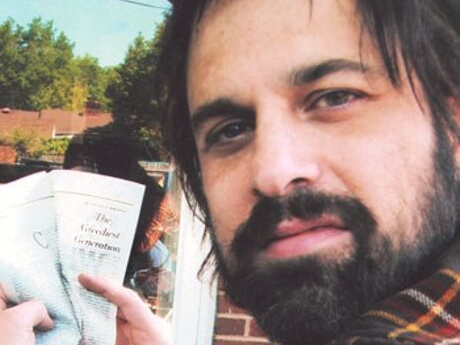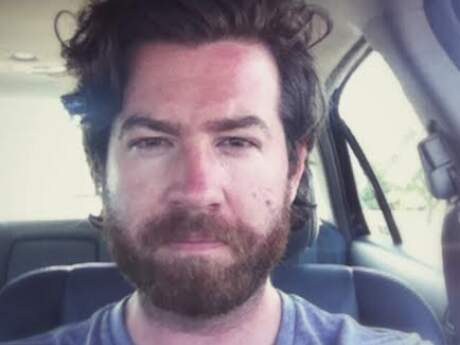New American Poets
New American Poets: David Berman

Snow
Walking through a field with my little brother Seth
I pointed to a place where kids had made angels in the snow.
For some reason, I told him that a troop of angels
had been shot and dissolved when they hit the ground.
He asked who had shot them and I said a farmer.
Then we were on the roof of the lake.
The ice looked like a photograph of water.
Why he asked. Why did he shoot them.
I didn't know where I was going with this.
They were on his property, I said.
When it's snowing, the outdoors seem like a room.
Today I traded hellos with my neighbor.
Our voices hung close in the new acoustics.
A room with the walls blasted to shreds and falling.
We returned to our shoveling, working side by side in silence.
But why were they on his property, he asked.
"Snow" by David Berman from Actual Air (Open City Books, 1999). Copyright © David Berman 1999. Reprinted with the permission of the poet.
If you could commission any poet, living or dead, to write a poem about a subject of your choice, who would you choose and what would you have them write about?
I'd take Wallace Stevens out of the depopulated regions where his poems are set and send him into the infield at the Kentucky Derby or Talladega and force him to show his hand. After all if he'd placed a bowl instead of a jar in Tennessee, he could have been the architect of Bristol International Speedway.
When did you set your foot on the path of poetry? Did you feel a sudden bolt? Or did you grow gradually more passionate about poetry?
I tried to write high-toned love poetry in high school for my girlfriends. It was dreadful. One day, dazed between classes, I wrote "A cartoon lake. Wolf on skates" in my notebook. Those were my first real lines.
Is there a collaborative element to your writing process and what do you think it is?
I try to make sure everything I write originates within myself. The only exception is this: I have poor hearing. The process of misunderstanding what others say to me and then using the misheard has been a fairly fruitful writing technique for me.
Do you think that poetry can have an effect on everyday speech? How?
It could and it should, but it doesn't.
Are there poems, poets, or anthologies that have opened up or radically altered your ideas of what can be done in poetry? How did they do that?
I always thought that the corollary to "make it new" should be "make it not boring." Stephen Crane and Kenneth Koch both inspired me. One with his clarity, the other with his obfuscation.
Did you start off with an idea that your book grew around? Did you move away from that idea as the book progressed?
I tried to write the most interesting poems I could, frontloaded the book with my favorites and then played 52- card-pickup with the rest.


